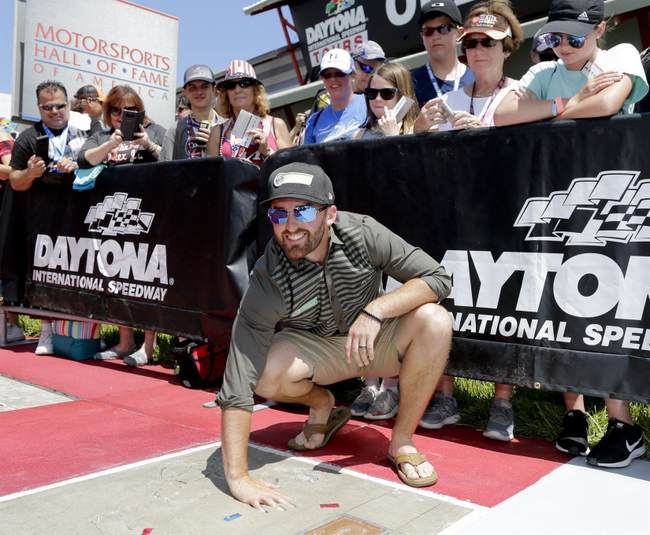Greetings from the sports desk located somewhere below decks of the Good Pirate Ship RedState. At present, my alleged associates Sammy the Shark and Karl the Kraken are far too hard at work to finish any writing.
Looks like you’re stuck with me, kids.
I mentioned in my August 14 post about the WNBA expansion franchise Golden State Valkyries that the WNBA hung a “gone fishin’” sign on its headquarters’ front door during the now-concluded Paris Olympics. So did NASCAR, albeit for different reasons. NBC, which holds broadcast rights for the second half of the NASCAR season, was too busy televising the Olympics to concern itself with the roundy rounds. Thus, NASCAR had two consecutive weekends off. No, North Carolina did not declare a state of emergency during this racing drought.
As the Olympics were winding down, NASCAR wound itself up and returned to action at Richmond Raceway on August 11 for the Cook Out 400. In their hearts, NASCAR fans have a special place for Richmond, as it offers the perfect mix of short-track action and sufficient length (3/4 mile) to avoid cars excessively stacking atop one another. There is no finer place to resume stock car racing.
Richmond being Richmond, a fair amount of damaged fenders and dented tempers made themselves evident during the race. However, no one anticipated the mayhem that transpired at the race’s end.
NASCAR, loathe to finish races under caution, has for several years had a system where, should the situation indicate the regularly scheduled final lap would most likely be under the yellow flag, it adds extra caution laps until it can safely resume racing. At that point, two laps under the green flag take place. Should there be a caution during the first lap, all parties concerned try it again. If the first lap concludes without a caution flag fluttering in the breeze, the next flag, be it yellow for caution or checkered for race end, concludes the proceedings.
Such was the case at Richmond. Austin Dillon, the grandson of team owner Richard Childress, was heading toward victory when, near race end, Ricky Stenhouse Jr. spun out Kyle Larson. This set up a green-white-wreckers … er, checkers situation. Dillon started first, with Joey Logano alongside in second and Denny Hamlin directly behind Dillion in third. Logano got the better of Dillion at the restart. Not surprising; as Logano’s résumé, which includes two Cup championships, states, he is a far more accomplished driver. Logano went into the final lap with the lead. He did not leave with same.
Simply put, Dillon ran over Logano and, for good measure, punted Hamlin en route to the win. Not cool.
Now, the bump-and-run is a time-honored trick in every NASCAR driver’s toolbox. The idea is to break the lead car’s momentum sufficiently to enable a pass that otherwise is proving problematic. It is also understood the maneuver can be, should the opportunity present itself, cheerfully returned. All parties involved grin, and the race continues. Rubbin’ is racin’, the saying goes. To a point, anyway. During his life and career, the late Dale Earnhardt was notorious for employing the bump-and-run so much, to the delight of his fans and dismay of his detractors, it seemed to the neutral observer like the auto racing equivalent of baseball players from that time juicing on steroids to slam home runs, being called out for their artificial enhancement by everyone except fans of whichever team said players plied their needle-tracked trade. The outpouring of raw emotion following Earmhardt’s death during the 2001 Daytona 500 obscured that there was no universal reverence for him within NASCAR fandom.
Back to the present. On August 14, NASCAR laid down the law. While allowing Dillon to keep the win, it stripped him of the win as far as qualifying him for the championship and lightened his wallet by $50K. Ironically, NASCAR levied the same fine against Logano for doing a tire-spinning bit next to Dillon’s pit stall after the race. Don’t toast your temper, Sliced Bread.
NASCAR’s motto may be “Have at it, boys” (girls if you include Hailie Deegan.) That said, Dillion crossed the line to where even NASCAR had, shall we say, had it. Austin Dillon may drive the #3, but he’s no Dale Earnhardt.

